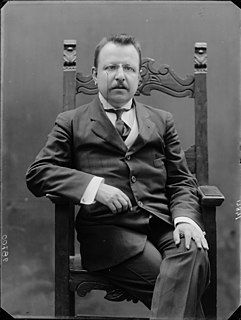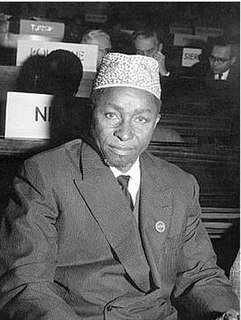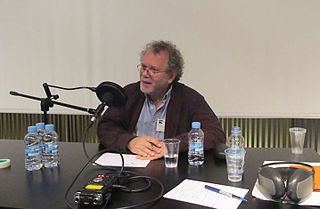A Quote by Benedetto Croce
Historical judgement is not a variety of knowledge, it is knowledge itself; it is the form which completely fills and exhausts the field of knowing, leaving no room for anything else.
Related Quotes
It is easy to see, though it scarcely needs to be pointed out, since it is involved in the fact that Reason is set aside, that faith is not a form of knowledge; for all knowledge is either a knowledge of the eternal, excluding the temporal and historical as indifferent, or it is pure historical knowledge. No knowledge can have for its object the absurdity that the eternal is the historical.
The knowledge we now consider knowledge proves itself in action. What we now mean by knowledge is information effective in action, information focused on results. Results are outside the person, in society and economy, or in the advancement of knowledge itself. To accomplish anything this knowledge has to be highly specialized.
Wisdom and knowledge can best be understood together. Knowledge is learning, the power of the mind to understand and describe the universe. Wisdom is knowing how to apply knowledge and how not to apply it. Knowledge is knowing what to say; wisdom is knowing whether or not to say it. Knowledge gives answers; wisdom asks questions. Knowledge can be taught, wisdom grows from experience.
What transforms this world is - knowledge. Do you see what I mean? Nothing else can change anything in this world. Knowledge alone is capable of transforming the world, while at the same time leaving it exactly as it is. When you look at the world with knowledge, you realize that things are unchangeable and at the same time are constantly being transformed.
We should not be content to say that power has a need for such-and-such a discovery, such-and-such a form of knowledge, but we should add that the exercise of power itself creates and causes to emerge new objects of knowledge and accumulates new bodies of information. ... The exercise of power perpetually creates knowledge and, conversely, knowledge constantly induces effects of power. ... It is not possible for power to be exercised without knowledge, it is impossible for knowledge not to engender power.
I found myself desiring and knowing less and less, until I could say in utter astonishment: "I know nothing, I want nothing." Earlier I was sure of so many things, now I am sure of nothing. But I feel I have lost nothing by not knowing, because all my knowledge was false. My not knowing was in itself knowledge of the fact that all my knowledge is ignorance, that "I do not know" is the only true statement the mind can make....I do not claim to know what you do not. In fact, I know much less than you do.
Now I wonder what our knowledge has in common with God's knowledge according to those who treat God's knowledge... Is there anything else common to both besides the mere name? ...there is an essential distinction between His knowledge and ours, like the distinction between the substance of the heavens and that of the earth.
In order to arrive at knowledge of the motions of birds in the air, it is first necessary to acquire knowledge of the winds, which we will prove by the motions of water in itself, and this knowledge will be a step enabling us to arrive at the knowledge of beings that fly between the air and the wind.








































